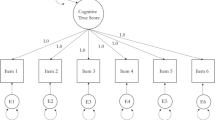Abstract
The ``doctrinal paradox'' or ``discursive dilemma'' shows that propositionwise majority voting over the judgments held by multiple individuals on some interconnected propositions can lead to inconsistent collective judgments on these propositions. List and Pettit (2002) have proved that this paradox illustrates a more general impossibility theorem showing that there exists no aggregation procedure that generally produces consistent collective judgments and satisfies certain minimal conditions. Although the paradox and the theorem concern the aggregation of judgments rather than preferences, they invite comparison with two established results on the aggregation of preferences: the Condorcet paradox and Arrow's impossibility theorem. We may ask whether the new impossibility theorem is a special case of Arrow's theorem, or whether there are interesting disanalogies between the two results. In this paper, we compare the two theorems, and show that they are not straightforward corollaries of each other. We further suggest that, while the framework of preference aggregation can be mapped into the framework of judgment aggregation, there exists no obvious reverse mapping. Finally, we address one particular minimal condition that is used in both theorems – an independence condition – and suggest that this condition points towards a unifying property underlying both impossibility results.
Similar content being viewed by others
REFERENCES
Anscombe, G. E. M.: 1976, ‘On Frustration of the Majority by Fulfillment of the Majority's Will’, Analysis 36(4), 161-168.
Arrow, K.: 1951/1963, Social Choice and Individual Values, John Wiley, New York.
Bossert, W. and J. Weymark: 1996, ‘Utility in Social Choice’, in S. Barberà, P. J. Hammond, and C. Seidel (eds.), Handbook of Utility Theory, Vol. 2, Kluwer Academic Publishers, Boston.
Black, D.: 1948, ‘On the Rationale of Group Decision-Making’, Journal of Political Economy 56, 23-34.
Dryzek, J. and C. List: 2003, ‘Social Choice Theory and Deliberative Democracy: A Reconciliation’, British Journal of Political Science 33(1), 1-28.
Kelly, J. S.: 1989, ‘The Ostrogorski Paradox’, Social Choice and Welfare 6, 71-76.
Kornhauser, L. A.: 1992, ‘Modelling Collegial Courts. II. Legal Doctrine’, Journal of Law, Economics and Organization 8, 441-470.
Kornhauser, L. A. and L. G. Sager: 1993, ‘The One and the Many: Adjudication in Collegial Courts’, California Law Review 81, 1-59.
List, C.: 2002, ‘A Model of Path-Dependence in Decisions over Multiple Propositions’, Nuffield College Working Paper in Economics 2002-W15.
List, C.: 2003, ‘A Possibility Theorem on Aggregation over Multiple Interconnected Propositions’, Mathematical Social Sciences 45(1), 1-13.
List, C. and P. Pettit: 2002, ‘Aggregating Sets of Judgements: An Impossibility Result’, Economics and Philosophy 18, 89-110.
May, K. O.: 1952, ‘A Set of Independent Necessary and Sufficient Conditions for Simple Majority Decision’, Econometrica 20(4), 680-684.
Riker, W. H.: 1982, Liberalism Against Populism, W. H. Freeman, San Franscisco.
Saari, D. G.: 1998, ‘Connecting and Resolving Sen's and Arrow's Theorem’, Social Choice and Welfare 15, 239-261.
Sen, A. K.: 1966, ‘A Possibility Theorem on Majority Decisions’, Econometrica 34, 491-499; reprinted in Sen, A. K. (1982) Choice, Welfare and Measurement, Blackwell, Oxford.
Author information
Authors and Affiliations
Rights and permissions
About this article
Cite this article
List, C., Pettit, P. Aggregating Sets of Judgments: Two Impossibility Results Compared1 . Synthese 140, 207–235 (2004). https://doi.org/10.1023/B:SYNT.0000029950.50517.59
Issue Date:
DOI: https://doi.org/10.1023/B:SYNT.0000029950.50517.59




